Oct
20
2022
0
Oct
17
2022
Sep
15
2022
0
Sep
15
2022
Emakumeak Zientzian
By admin
Short summary:
Emakumeak Zientzian is a project focused on increasing gender equality in STEM through a range of activities, with a strong focus on STEAM. The programme was created by POLYMAT (Basque Center for Macromolecular Design and Engineering) and is supported by 17 organisations in all education levels from the STEM ecosystem in the Basque Country (Spain).
Description and objectives:
Emakumeak zientzian is a project promoted by POLYMAT (Basque Center for Macromolecular Design and Engineering) which was set up in 2017 in order to inspire science, technology and engineering vocations among girls and female adolescents, as well as to contributing to combat the gender stereotypes associated with research jobs. The project was launched on February 11 - the International Day of Women and Girls in Science – as a purely promotional activity. However, over time it has become a programme of STEAM activities aimed at different segments of the population and run by Polymat and a further 17 entities from the Basque scientific and technology ecosystem.
Currently the programme involves over 25 activities which are implemented annually. The majority of these activities are directly focused on inspiring science, technology and engineering vocations in girls and female adolescents and for them to aspire to careers in those areas, as well as to contributing to combatting gender stereotypes.
Emakumeak Zientzian’s accolades include:
- Gender perspective mention by STEAM EUSKADI.
- First place in the STEAM EUSKADI Awards.
The main objective of this initiative is to address the problem of gender inequality in the STEM field by introducing the gender perspective throughout the activities programme. In addition, the programme implements two specific STEAM education objectives:
- Inspire professional careers and vocations in STEM
- Improve students’ mathematic and scientific skills
Country:
Education level:
Link to programme website:
Logo or photo:
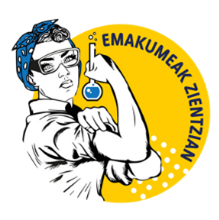
Impact:
Impact is measured primarily through impact surveys among participants. These indicate that the programme is effective in raising interest in STEM subjects among participants.
Reach:
The programme's reach is measured as:
- Direct ivolvement of 17 science and technology partner entities that range from basic to applied research (Polymat, CIC nanoGUNE, CFM, DIPC, CIC biomaGUNE, Tecnun, CEIT, Biodonostia Health Research Institute, Elhuyar, Euskal Zientzia Museoa, Gipukoa Institute of Industrial Engineers, Technology Parks of the Basque Country, Lortek, BCBL, Gipuzkoa School of Engineering – University of the Basque Country (UPV/EHU), UPV/EHU Computer Science Faculty, UPV/EHU Chemistry Faculty).
- In 2021, 2.410 people directly took part in the programme's activities.
Budget and funding model:
The programme is funded by participating companies, participating universities and the Spanish Government.
Year start:
2017
Status:
Riga Technical University (RTU)
Riga Technical University (RTU) is the premier internationally multidiscipline technical university in Latvia. RTU is purposefully evolving to become the fourth-generation university that offers not only high-quality education, but also provides for excellent research and sustainable valorization, as well as smart digitalization. RTU also plays a major role in the development and implementation of STE(A)M initiatives in Latvia. These include initiatives focused on
a. Fostering motivation and interest, including:
- RTU Children and Youth University – to stimulate the interest of children in STEAM subjects by offering 2nd - 9th class scholars informal education lessons thus to show them their future study and career opportunities in the fields of engineering. RTU Children and Youth University is a member of the EUCU.net network, which unites and promotes cooperation between children and youth universities in Europe and elsewhere in the world.;
- RTU Children and Youth Science Center – to create an interest in engineering and natural sciences through entertaining science exhibition and workshops for providing a “hands on experience”. The opening of the center is planned for the beginning of the year 2023;
b. Creating MOOC's for STEAM subjects, including:
- Project “STEAM Lyceum” – to create MOOC’s for high school level subjects of mathematics, physics and chemistry to make them accessible anytime and anywhere for scholars and first year students. Project is being developed in a cooperation between RTU, Employers' Confederation of Latvia and private sector represented by mobile telecommunications operator and market leader in Latvia – LMT, who has already gained expertise of successful collaborations with the government, academic and startup ecosystem partners. It is planned that the Chancellery of the President, the Ministry of Education and the Ministry of Economics could be involved in the preparation and provision of the STEAM Lyceum. The project launch is planned for the middle of the year 2023;
c. Building community and support systems for high-achieving students, including:
- RTU Engineering High School (EHS) – is the first general secondary education establishment in Latvia that has been founded within the framework of a university. It is the place where the most talented Latvian schoolchildren will be able to acquire the study courses in exact and natural sciences at an advanced level to get prepared for the engineering studies. At EHS, special attention is paid to the integration of engineering studies and scientific research activities into the study process. The school cooperates with several leading companies from the private sector;
- RTU Talent Program – offers the best students of Latvia and graduates of EHS a place financed by the state budget in the chosen study program, an individualized study plan, lectures and seminars for the improvement of personal skills, as well as individual mentoring. The full training cycle of the RTU Talent Program has been developed for 4 years. The content of the program is designed to offer, in parallel with the formal study process, the opportunity to acquire an individual study program that is adapted in terms of content and intensity. When designing the training program, special attention is paid to enabling young people in each of the Talent programs to grow not only as professionals and develop their careers in the future, but also to become stronger as individuals;
d. Identifying issues in the STE(A)M talent pipeline, including through:
- Participation in conferences/forums – on current issues in the field of education involving leading stakeholders (The Parliament of Latvia, Ministry of Education and Science, The Ministry of Economics etc.)

Sep
14
2022
Smartgene STEAM extracurricular school
By admin
Short summary:
Smartgene is an extracurricular private hobby school that consists of different extracurricular STEAM activities and classes for children in the kindergarten until classes 4-6, including robotics class, electronics class, science class, landscaping & architecture class, and “future skills class”.
Description and objectives:
Smartgene is an extracurricular private hobby school that consists of different extracurricular STEAM activities and classes for children in the kindergarten until classes 4-6, including robotics class, electronics class, science class, landscaping & architecture class, and “future skills class”. All the classes take place once a week.
Smartgene also organizes STEAM city camps during school vacations, aimed at children aged 7-13 years. The mission of Smartgene is to be a safe and instructive environment for children to learn STEM subjects through targeted games.
The objective of Smartgene is to encourage children to playfully solve real life everyday problems. Since the demand for STEAM proficiency increases in Estonia every year, Smartgene has developed extracurricular classes to introduce children at early ages science, robotics, and electronic areas. It's impact is measured by the number of kids participating in the extracurricular classes and camps.
The objectives are related to Estonia's broader government strategy to raise the popularity of science and IT as a career choice due to the fact that Estonia is facing a reality, where the demand for such professionals is higher than the supply. In addition, it is associated with the aim to develop a research-intensive economy.
Country:
Education level:
Link to programme website:
Logo or photo:
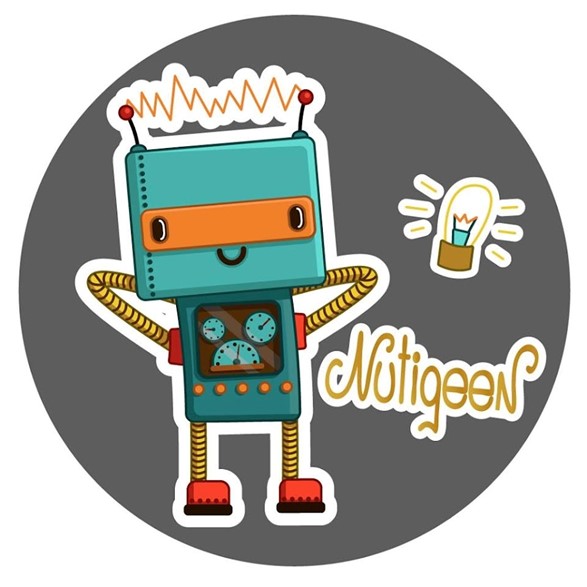
Impact:
Smartgene gives the opportunity for young people to get acquainted with different STEAM subject from the early age. Children learn through active and interactive play how to solve everyday problems. They get the opportunity to use their critical thinking and problem-solving skills based on the principles of the natural sciences, engineering, and mathematics.
Reach:
The Smartgene city camps each are meant for up to 30 children, and every year over 400 children participate in the Smartgene classes.
Budget and funding model:
The programme’s funding mechanism is based on the membership model – the funding depends on the children participating in the hobby school. All the Smartgene classes have a monthly fee for a child participating in the classes.
Year start:
2016
Status:
Sep
14
2022
NPO Robotics
By admin
Short summary:
The NPO Robotics programme includes a range of well-known robotics-related education activities in Estonia, including FIRST Lego League and RoboMiku.
Description and objectives:
The NPO Robotics programme aims to offer different learning and competition opportunities in robotics. The NPO Robotics has several different projects and outcomes and some of its programmes are connected to international initiatives and competitions:
- Competition RoboMiku - gives pupils the opportunity to build their own robot individually or in teams and put them to the test. The competition has different categories depending on the robot and age of the pupil
- First Lego League - a three-part robotics program meant for different age groups and based on that, have different difficulty levels. The aim is to popularize science and technology in a fun way. With that, other necessary skills and knowledge are being developed.
- School visits - workshops in robotics are offered to the interested schools. In one workshop, 20 students can participate. The necessary tools, equipment, robots and instructors are visiting schools all over Estonia
- Several projects that aim to promote robotics in pupils and teachers. They also offer additional training to teachers so that robotics would be a natural part of the curriculum.
The objective is to give young people practical knowledge about technology and robotics. The main focus is on practical knowledge and opportunity to work with technology that otherwise may not be available in schools. In addition, students have the opportunity to compete with each other.
The objectives are related to Estonia's broader government strategy to raise the popularity of engineering and technology as a career path. The aim is also to develop the STEM teachers so that the teaching quality would be high and the used methods modern and in compliance with the needs of the students.
Country:
Education level:
Link to programme website:
Logo or photo:
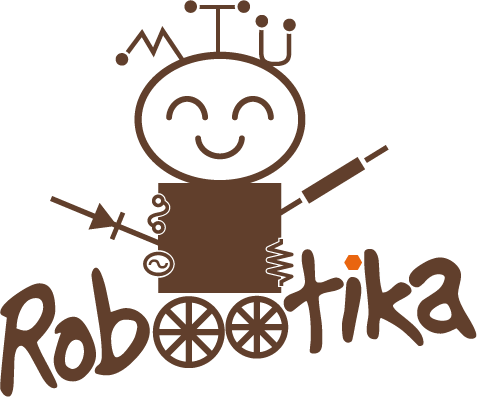
Impact:
The Robotics competitions and workshops have a direct impact on pupils to learn more about robotics and technology. Within the last few years, the number of applicants to the IT and robotics curricula has increased. It meets the countries need to have more IT competence both in the public and private sector.
Reach:
In every year NPO Robotics reaches with its different activities to thousands of young people all over Estonia.
In 2019, more than 650 students and about 100 teachers participated in the RoboMiku competition. In the FIRST LEGO League, there were more than 40 best teams as finalists taking part in the competition.
Budget and funding model:
Funding of the activities is based on different finance sources:
- EU programmes, such as Erasmus+ and European Regional Development Fund
- Project-based funding by the Ministry of Education and Research, HITSA, University of Tartu
- Funding from private companies
Year start:
2005
Status:
Sep
14
2022
Mobile Bioclass
By admin
Short summary:
The Mobile Bioclass programme brings the latest DNA testing and research methods to secondary schools all over Estonia. In small, high-intensity workshops students experience the opportunities of the biosciences-sector first hand under the supervision of university instructors. The programme has contributed to a significant rise in the number of students opting to study bio-sciences.
Description and objectives:
The Mobile Bioclass project started in Estonia in 2014 with the aim to introduce the biosciences in Estonian schools. The programme brought the latest DNA testing and research methods to schools all over Estonia.
The Mobile Class project started originally in Lithuania by Thermo Fisher Scientific and has since been the main collaboration partner for the University of Tartu (project coordinator). Thermo Fisher Scientific is providing the project with laboratory tools and equipment ever since. The instructors of the programme are University of Tartu students mainly from science and technology faculty.
The main target group for the Mobile Bioclass is high school students. The project also aims to bring its programme to the smaller schools that otherwise do not have the possibilities to visit research laboratories and universities.
The programme lasts for about six hours and is for 24 students at the time with 6 instructors. The necessary tools for the programme are brought to the school from University of Tartu. The programme consists of a lecture (about four hours) and practical experiment (about two hours). The programme uses a DNA PCR analysis as its practical part to consolidate the theoretical knowledge.
The objective of the project is to popularize biosciences and introduce the modern methods for researching DNA and technology used in the biotechnology laboratories. As a result, the project increases the knowledge about the learning opportunities of biology and gene technology. The objective is to visit one school per week during a school year with the emphasis on smaller schools.
The objectives are measured by the number of schools the Mobile Class has visited and the number of kilometers traveled doing that.
Country:
Education level:
Link to programme website:
Logo or photo:
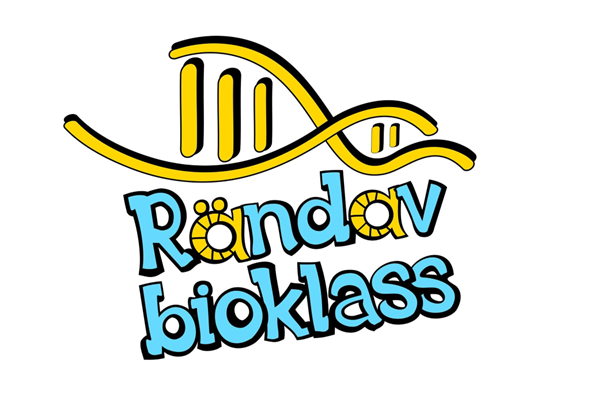
Impact:
The number of students admitted to the science and technology field in the University of Tartu has grown 17%, meaning that the programme is motivating students to study the field. This is one of the indicators measuring the long-term impact.
However, the feedback is gathered after every visit to the school that gives an input to the programme's overall impact on the (mostly) biology subject in the schools. The programme is rated highly by the teachers and according to them, it adds a priceless value to the theoretical knowledge that is taught in schools. Moreover, the programme has a bigger impact in the schools located in remote areas of Estonia since they do not have many opportunities to visit research laboratories or have many extracurricular activities.
The feedback is gathered after every school visit from the participating students and teachers. It is analysed in short term, but also long term. The results are being presented to the organizing team to improve the programme.
Reach:
Within one school year, the Mobile Bioclass programme visits about 20 schools and 480 high school students. In addition to that, Mobile Bioclass participates in the biggest events (Science Night, International DNA Day etc) with its pop-up laboratory, adding about 2 000 additional people to the list every year.
The objective of the programme is to visit one school in a week during the school year.
Budget and funding model:
The Mobile Bioclass is funded by Thermo Fisher Scientific (mainly providing tools and equipment), but also by Estonian Research Council by the funding project TeaMe+. The funding is directly not associated with the outcomes or performance.
Year start:
2014
Status:
Sep
13
2022
KVARK Science Theatre
By admin
Short summary:
The KVARK project was grown out of the highly successful Rocket69 science TV contest (see related page). KVARK’s objectives are to popularize scientific thinking and scientific approach in public by offering scientific content for different events, scientific entertainment in a form of science theatre, and by conducting clever workshops for both children and adults. KVARK also produces scientific and educational exhibits for museums and helps organisations to arrange projects that support science-based society, and environment.
Description and objectives:
The KVARK project was grown out of the Rocket69 science TV contest (see related page). The main reason for the creation was to broaden the public knowledge about science and scientific thinking. KVARK concentrates on three main actions:
- Popularizing science, technology, and engineering
- Rising the quality of the scientific, engineering, and technological education
- Adding value to working in the science, technology, and engineering subject fields
The team of KVARK includes undergraduates and graduates from different STEM specialities. KVARK’s objectives are to popularize scientific thinking and scientific approach in public by offering scientific content for different events, scientific entertainment in a form of science theatre, and by conducting clever workshops for both children and adults. KVARK also produces scientific and educational exhibits for museums and helps organisations to arrange projects that support science-based society, and environment.The objectives also include raising young people's (primary target group) interest in STEM education, professions, and careers in these fields. The objectives are measured by the projects supported; the number of events/workshops carried out. The indirect indication is evaluated based on the statistics of popularity of STEM specialties among the students’ enrolling universities, vocational schools, and hobby education.
Country:
Link to programme website:
Logo or photo:
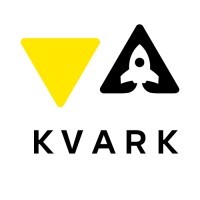
Impact:
KVARK and the science theatre shows have increased the popularity of STEM in young children – by making the scientific experiments entertaining, they are more interested in enrolling in vocational schools. The impact of the programme is measured primarily in the number of participants.
Reach:
The objective is to increase the number of projects supported, increase the number of people participating in the science theatre events. The future goal for KVARK is to start organizing events for teachers in the STEM subjects to increase the reach. In 2019, KVARK organized a science theatre performance for 12,000 people.
Budget and funding model:
KVARK’s funding model is performance-based funding
Year start:
2016
Status:
Sep
13
2022
Cool Geography Class
By admin
Short summary:
The Cool Geography Class was developed by the EGEA-Tartu (European Geography Association for students and young geographers) in 2016. The aim of the project is to popularise the scientific geography and its career opportunities in Estonian schools. The development of the programme is based on the input of (geography) teachers and their needs for practical lessons.
Description and objectives:
The Cool Geography Class was developed by the EGEA-Tartu (European Geography Association for students and young geographers) in 2016. The aim of the project is to popularise the scientific geography and its career opportunities in Estonian schools. The development of the programme is based on the input of (geography) teachers and their needs for practical lessons.
Every year, the programme develops four new lesson topics that consist of theoretical and practical work. The lessons are conducted by the University of Tartu geography students (all together about 20 students). The lessons are provided based on the schools interest and for them and for the school. The lessons are completely free of charge.
In 2020, the lessons topics were:
- spatial planning
- smartphones as a tool for geography
- natural geography
- 3D modelling
The progress of the programme is measured in terms of the number the schools visited every year. The programme supports the countries aim to increase the number of applicatns in the universities in the STEM fields and with the goal of smart specialisation.
Country:
Education level:
Link to programme website:
Logo or photo:

Impact:
The impact of the programme is measured in terms of the number of students that have participated in the programme. The impact of the programme is also recognized by the Estonian Research Council as the best science popularizer in 2020.
In addition, the number of students accepted to the University of Tartu in geography curricula has slightly increased in the last several years.
Reach:
The reach of the programme in 2019 was 36 schools and 2487 students in Estonia. All together the program´ s team travelled 6428 doing the visits.
Budget and funding model:
The project is mainly funded by the Estonian Research Council and supported by the University of Tartu Geography department and EGEA-Tartu. Private donations are also accepted.
Year start:
2016
Status:





